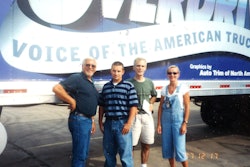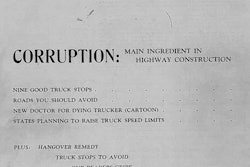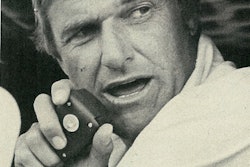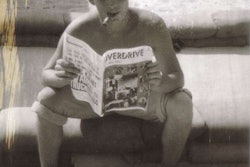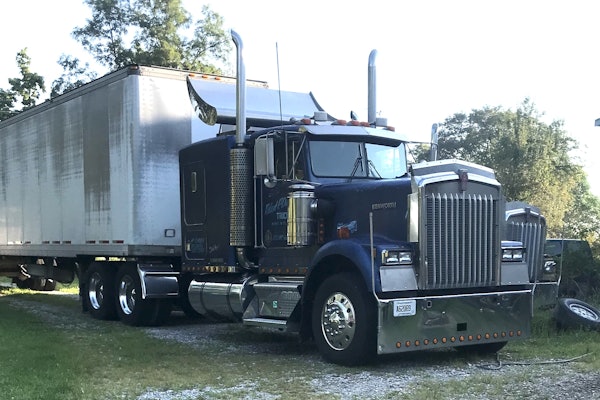Go way back in Overdrive’s 60-year history and you’ll find more than a little dabbling in the bright lights of Hollywood and the country music scene of the ‘60s and ‘70s. It didn’t hurt that the Overdrive office was in the entertainment mecca of the Los Angeles area, but what really drove the connections was Overdrive’s founder and editor, former independent trucker Mike Parkhurst.
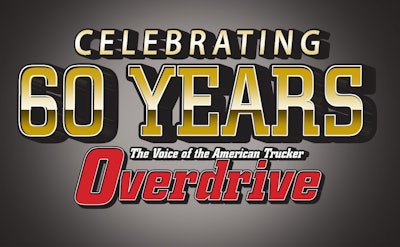 Read more in Overdrive's weekly 60th-annversary series of lookbacks on trucking history, and that of the magazine itself, via this link.
Read more in Overdrive's weekly 60th-annversary series of lookbacks on trucking history, and that of the magazine itself, via this link.
“My Overdrive days were from 1970-'86, with the exception of 1979-'81, when I produced national TV specials,” said Galloway. Some of them focused on country music stars, such as “Great Ladies of Country” and “Tribute to Kitty Wells.” They were not tied to Overdrive, though Galloway’s first TV special, “Truckin’ in Nashville,” was produced in 1979 outside a Nashville, Tennessee, truck stop.

It included performances from many of country music’s leading names. The audience was filled with truckers who had come to Nashville for a convention of the Independent Truckers Association, a trade group Parkhurst had founded. Below is a brief clip showing Parkhurst and his wife, the actress Lori Michaels, applauding as Hank Williams, Jr., concludes one of his father’s biggest hits, “Your Cheatin’ Heart,” at the event.
Parkhurst sold Overdrive to what is now Randall-Reilly in 1986. “I remained close friends with Mike Parkhurst until his demise,” Galloway said.
 Roger Galloway
Roger Galloway
Most notable of all the movie projects attempted by Parkhurst before and after Overdrive's sale was the feature-length trucking drama “Moonfire.” Written, directed and produced by Parkhurst, it was released in 1972, when trucking loomed large in the nation’s pop culture.
Another was a short 1965 trucking documentary that Overdrive financed, “Big Rig,” not to be confused with another documentary of the same name released in 2007. A 1966 Overdrive cover highlighted lutist Norman Andre, the artist who provided the theme song, “Big Rig Man,” for the older “Big Rig” movie.
And after selling Overdrive, Parkhurst produced “Trucker Wars: The True Story of the Three Trucker Shutdowns," based largely on Overdrive's role in those activities. The DVD is available on eBay.
Decades after the "Moonfire" debut, Overdrive’s then-Senior Editor Andy Duncan described it: “Hard to follow and hard to forget, it’s about a lost space capsule, a gang of Mexican bandits and a fortune hidden inside a load of lettuce.”
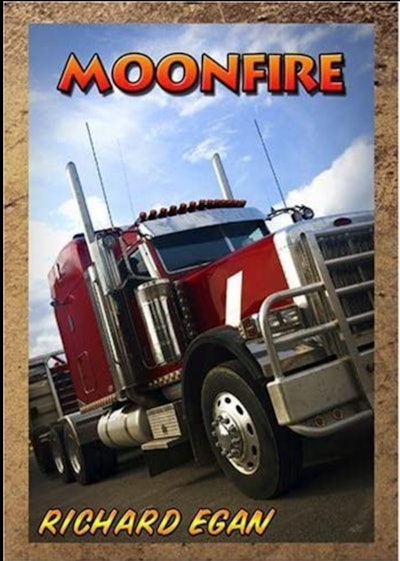 “Moonfire” can now be streamed free for Amazon Prime members and is available elsewhere.
“Moonfire” can now be streamed free for Amazon Prime members and is available elsewhere.
Nevertheless, the production has claims to fame via its cast and music.
Richard Egan gets top billing in the movie. “Egan, who died in 1987, was a leading man best remembered today for getting top billing in Elvis Presley’s first movie,” wrote Duncan. “His top billing in ‘Moonfire’ may be equally unfair.”
That’s because Charles Napier, in a strange turn midway in production (explained in the podcast below), ended up as the de facto lead, as Galloway and Duncan see it. Napier went on to get small roles in films directed by Jonathan Demme, including “The Silence of the Lambs.” He also learned to drive a truck for “Moonfire” and spent a few years as a roving correspondent for Overdrive. Napier died in 2011.
Also appearing in the movie is Sonny Liston, a former heavyweight boxing champ. He died in 1970, shortly after the movie’s filming.
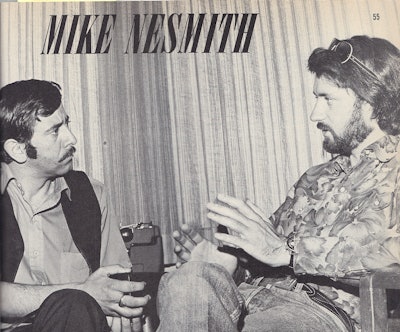 Overdrive’s Roger Galloway, left, interviews Mike Nesmith, guitarist for The Monkees, a band conceived for a comedy TV series that ran 1966-1968.
Overdrive’s Roger Galloway, left, interviews Mike Nesmith, guitarist for The Monkees, a band conceived for a comedy TV series that ran 1966-1968.
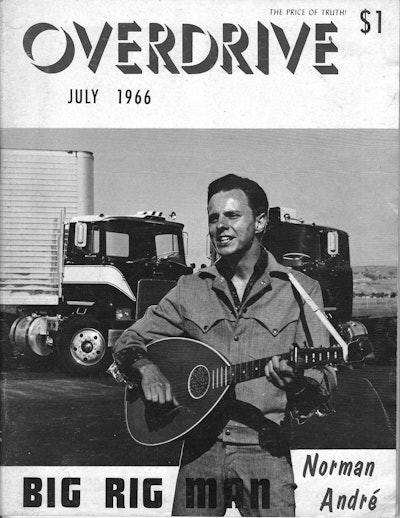 The cover of the July 1966 Overdrive highlighted lutist Norman Andre and his song “Big Rig Man,” the theme song for a half-hour documentary on the trucking industry, “Big Rig.” According to a 2017 article by Stephen Canner on MediatedSignals.com, citing a 1966 issue of Billboard magazine, the song was the debut release for the new Palomino Records label, owned by Overdrive founder Mike Parkhurst. Canner writes that Andre – by then using his real name, Norman A. Anderson – also did much of the soundtrack for Parkhurst’s better-known movie, “Moonfire.” However, that movie’s soundtrack is best known for two songs by country star Marty Robbins, “Wheel of Life” and “Get You Off My Mind.” The tunes were released as a promo-only 45 on Palomino in 1972, Canner said.
The cover of the July 1966 Overdrive highlighted lutist Norman Andre and his song “Big Rig Man,” the theme song for a half-hour documentary on the trucking industry, “Big Rig.” According to a 2017 article by Stephen Canner on MediatedSignals.com, citing a 1966 issue of Billboard magazine, the song was the debut release for the new Palomino Records label, owned by Overdrive founder Mike Parkhurst. Canner writes that Andre – by then using his real name, Norman A. Anderson – also did much of the soundtrack for Parkhurst’s better-known movie, “Moonfire.” However, that movie’s soundtrack is best known for two songs by country star Marty Robbins, “Wheel of Life” and “Get You Off My Mind.” The tunes were released as a promo-only 45 on Palomino in 1972, Canner said.
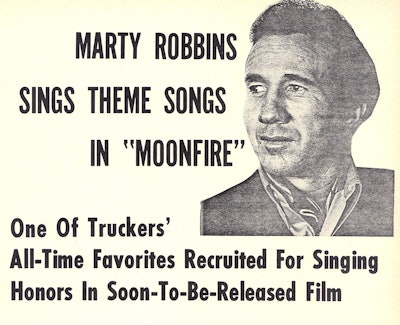 The production of the trucking movie “Moonfire” meshed Overdrive founder Mike Parkhurst’s interest in film and country music. This article was published in the December 1971 issue of Overdrive.
The production of the trucking movie “Moonfire” meshed Overdrive founder Mike Parkhurst’s interest in film and country music. This article was published in the December 1971 issue of Overdrive.
For more about “Moonfire,” Parkhurst, Napier, Robbins and other details from Overdrive’s early years, listen in on to my interview with Galloway in this special edition of Overdrive Radio:

